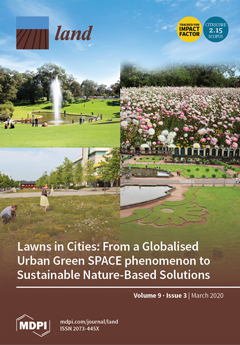Resource information
The impacts of human activities on ecosystems are significantly increasing the rate of environmental change in the earth system, reshaping the global landscape. The rapid rate of environmental change is disrupting the ability of millions of people around the globe to live their everyday lives and maintain their human niche. Evidence suggests that we have entered (or created) a new epoch, the Anthropocene, which is defined as the period in which humans and human activities are the primary drivers of planetary change. The Anthropocene denotes a global shift, but it is the collective of local processes. This is our frame for investigating local accounts of human-caused disruptive environmental change in the Pampana River in Tonkolili District, Northern Province, Sierra Leone. Since the end of the Sierra Leonean civil war in 2002, the country has experienced a rapid increase in extractive industries, namely mining. We explored the effects of this development by working with communities along the Pampana River in Tonkolili, with a specific focus given to engaging local fishermen through ethnographic interviews (N = 21 fishermen and 33 non-fishermen), focus group discussions (N = 21 fishermen), and participant observation. We deployed theoretical and methodological frameworks from human niche construction theory, complex adaptive systems, and ethnography to track disruptive environmental change in and on the Pampana from upstream activities and the concomitant shifts in the local human niche. We highlight the value of integrating ethnographic methods with human evolutionary theory, produce important insights about local human coping processes with disruptive environmental change, and help to further account for and understand the ongoing global process of human modification of the earth system in the Anthropocene.


